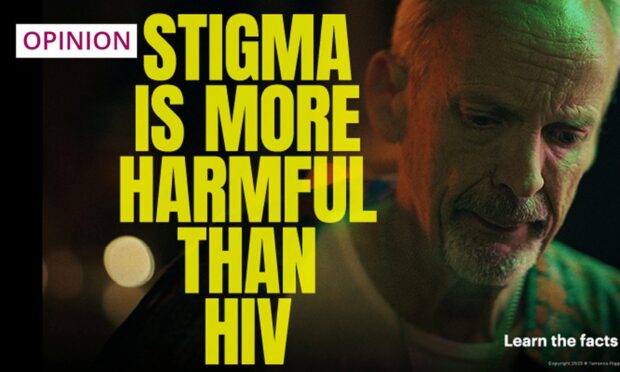Scotland has long been a leader in health, introducing game-changing policies such as the indoor smoking ban in public places and free school meals – policies which have largely improved the well-being of many Scots.
Now, we are facing another monumental public health opportunity – to end new transmissions of HIV by 2030.
It may not have seemed possible during the height of the HIV/AIDS epidemic of the late 20th century, but thanks to revolutionary medication, people can live long, healthy lives with HIV and cannot pass the virus on. We are at a point now where we can end new transmissions for good.
But what is the situation now? And what more do we need to do to get to zero by 2030?
In many ways, we are at an exciting moment. Recent data shows that new HIV diagnoses have been declining year on year. For the first time ever, heterosexually acquired new diagnoses have overtaken transmissions among gay and bisexual men in Scotland.
This is thanks to a plethora of preventative measures, most significantly PrEP (pre-exposure prophylaxis) – a pill you take to prevent HIV through sex. Scotland was the first nation in the UK to make PrEP free at point of access on the NHS, and it is highly effective in preventing HIV.
In recent months, we have also seen the first TV advert about HIV since the infamous “Don’t Die of Ignorance” tombstone ad of the 1980s. Focusing on the message that stigma is more harmful than HIV, the new ad – led by the Terrence Higgins Trust Scotland and the Scottish Government – shows that it is not the virus itself that damages lives, but rather outdated and prejudicial misconceptions about the virus.
While you can live a healthy and happy life with HIV, a new diagnosis can be difficult and life-changing because of the stigma associated.
Some continue to hold negative views towards people with HIV
It is brilliant to see these developments, and we have come a long way since the latter part of the 20th century, when the epidemic was at its height. However, we are concerned that progress is moving far too slowly.
If we do not continue to prioritise ending the HIV epidemic, we risk falling behind other nations – including England and Wales. South of the border, a pilot of opt-out blood borne virus testing in emergency departments has successfully found thousands of people who did not know they were living with HIV or hepatitis.
The initiative also has made estimated savings of over £8 million, enormously freeing up NHS capacity. This is a significant opportunity for Scotland to continue leading in public health and to make a real difference.
We also still face the problem of HIV stigma. While the new TV campaign is a brilliant way to start the conversation, we know some continue to hold negative views towards people living with HIV. A recent YouGov survey found that just one third (35%) of people in Scotland would be happy to kiss someone living with HIV, despite it being known since the 1980s that HIV cannot be passed on through saliva.
We have the tools to end new transmissions and stigma
Stigma continues to force many people living with HIV to feel shame about their status. It can make someone more likely to face discrimination, less likely to adhere to their medication, and can significantly worsen mental health. Stigma is harmful and damaging and needs to be tackled head-on.
It is clear that we are in a privileged position in Scotland – we have the tools, we know what works, and we can get to zero. We need to ensure that every person in Scotland has equitable access to HIV testing, prevention and support upon receiving a diagnosis.
The Scottish Government has committed to ending new transmissions of HIV by 2030, but we need to see transformative policies to keep us on track
We also must educate the public on what it means to live with HIV today, showing that the virus cannot be passed on when in treatment.
The Scottish Government has committed to ending new transmissions of HIV by 2030, but we need to see transformative policies to keep us on track: opt-out testing, expanding access to PrEP and ending HIV stigma are necessary actions to help us get there. We must continue leading the way to get to zero.
Grant Sugden is CEO of Waverley Care, a charity providing care and support to people with HIV and/or hepatitis C

Conversation